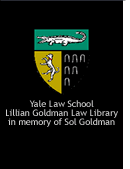
 |
 |
- produced by Ambia Harper & Meron Hadero ABSTRACT This video presentation explores the experience of women during apartheid and as witness before South Africa’s Truth and Reconciliation Commission. The video presents the stories of four women: Kate Serokolo, Zubeida Jaffer, Shirley Gunn, and Phila Ndwandwe. Using their stories as a lens, this presentation looks critically at the TRC and the ways in which it failed to develop a complete and accurate narrative account of the experiences of women in South Africa. INTRODUCTION This video explores the gendered nature of violence in apartheid South Africa’s, and the remedies that the TRC adopted to address violence against women. Acknowledging that the standard TRC hearings offered women an inadequate forum for testimony, the TRC established three separate Special Hearings on Women. These hearings allowed women to testify on their own behalf, and to tell their own stories. For students of reconciliation commissions, it is useful to ask if the model employed by South Africa’s TRC was the right one. According to its report, the TRC feared that this structure would be seen as “sidelining” women’s trauma, and marginalizing their stories. How do we tell the story of gendered violence, especially in nations that are still operating under patriarchal norms? Are special hearings a useful format, or should we attempt to incorporate the stories of women into standard testimony?
The story of the women’s hearings is one of great accomplishment, mixed with failure. This video shows Shirley Gunn, an activist who testified about abuses against her and her son, and who hopes that her testimony will empower other women as well. But Gunn realizes that very few women were given the opportunity to testify at these three hearings. Zubeida Jaffer mentions that she was threatened with rape, a common occurrence during the detention of women. However, statistics suggest that women were hesitant to testify about their experiences of rape, and it is thought that this crime was grossly underreported at the TRC.
This video also explores the life of Phila Ndwandwe, a twenty-four year old MK commander who was detained and killed because she refused to become an informer. She is symbolic of the South African woman activist, and the image of her as a mother (with a baby in one hand and a weapon in the other) demonstrates the dual role of women in the nation during the resistance movement. Throughout the TRC hearings, women have commented on the effect of detention on their motherhood and their family life. Apartheid ripped families apart. This video ends with a segment that shows a family being brought together under the TRC’s influence. Phila’s parents were able to locate her remains, and they were reunited with their grandson, whom they had never met. However, for every instance of resolution and closure, there are many stories left untold. These stories belong disproportionately to women. Much work remains to be done.
|
|
Biographies Ambia Harper Ambia Harper is a member of the Yale Law School class of 2006. She graduated from Columbia University in 2001 with a degree in Political Science and a certificate in Creative Writing. At Yale, she is an editor for the Yale Law and Policy Review’s School Finance Litigation Symposium, and she is the new Vice President of the Black Law Students Association. Ambia will spend the summer of 2004 working at the Legal Resources Centre in Johannesburg. Meron Hadero Meron Hadero is a member of the Yale Law School class of 2006. She earned her A.B. from Princeton University in 2001 with a degree in History and a certificate in American Studies. Meron participates in the Immigration Legal Services Clinic, she is a member of the Human Rights and Development Law Journal, and she serves as Political Action Co-Chair for the Black Law Students Association. Meron will spend the 2004 summer working for the United Nations Economic Commission for Africa, Addis Ababa, Ethiopia. |
|
| Return to Multimedia Page | List of Websites | Bibliography |
|